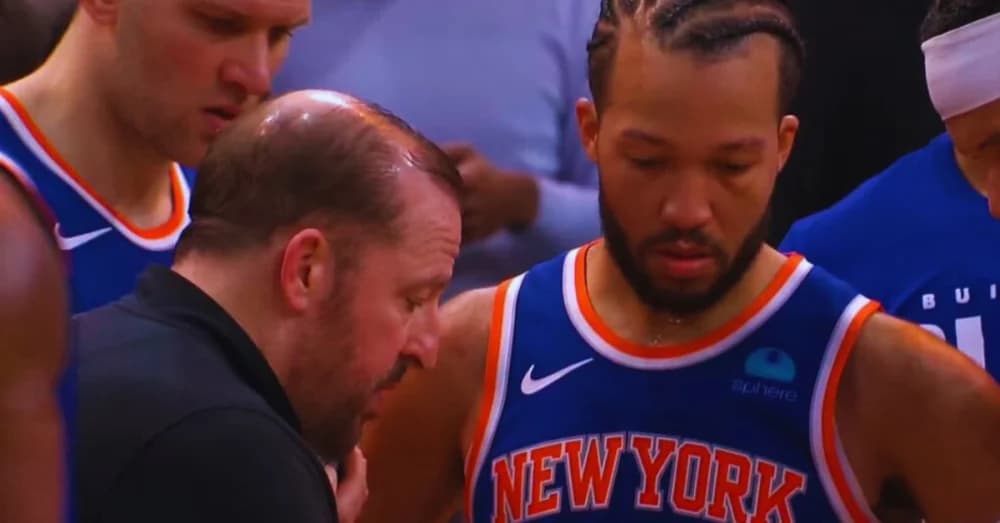Knicks’ Protest Raises Eyebrows in NBA Circles

The echoes of dissatisfaction reverberated through Madison Square Garden as the New York Knicks found themselves embroiled in a tempest of controversy following a disputed call in the dying embers of their clash with the Houston Rockets. It was a moment that didn’t just decide a game; it ignited a fiery Knicks’ protest, challenging the very fabric of fairness in the NBA.
Knicks’ Protest Raises Eyebrows in NBA Circles
With a mere 0.3 seconds remaining on the clock and the score knotted at 103 apiece, the referee’s whistle pierced the tension, attributing a foul to New York’s Jalen Brunson against Houston’s Aaron Holiday. Holiday, seizing the opportunity, sunk two crucial free throws, sealing the Rockets’ 105-103 triumph.
In the aftermath, amidst a maelstrom of debate and discontent, the Knicks took an unprecedented step, filing a formal protest against the outcome of the game. Their rationale? A glaring injustice, a missed chance to alter the course of the match, and a resolute show of solidarity with their players and coaching staff.
But what does the path of protest entail in the NBA’s labyrinthine bureaucracy? According to the league’s constitution and by-laws, a protest must be lodged within 48 hours of the game’s conclusion, supported by a $25,000 fee payable to the NBA. This initiates a swift yet rigorous process of investigation, with Commissioner Adam Silver wielding the gavel of judgment.
Yet, history paints a sobering picture for the Knicks’ aspirations. Of the 46 protests filed in NBA annals, victory has eluded the aggrieved just six times, a stark testament to the league’s reluctance to overturn the decisions of its arbiters.
But why such an uphill battle for the Knicks, especially if the call was unequivocally incorrect? The answer lies in the NBA’s stringent criteria for upholding protests: a misapplication of the rules rather than a mere judgment call. In a sport rife with split-second decisions, subjectivity often eclipses objectivity, leaving little room for retroactive corrections.
The saga of protests in the NBA is peppered with tales of defiance and disappointment. One such instance dates back to the 2007-08 season when the Miami Heat challenged a pivotal call against the Atlanta Hawks, only to witness a bittersweet resolution that underscored the futility of such endeavors.
As the Knicks await the verdict on their protest, they stand at a crossroads between defiance and resignation, emblematic of a league grappling with the eternal struggle between justice and expediency. In the crucible of competition, where every call carries the weight of destiny, the path forward remains shrouded in uncertainty, a tantalizing enigma awaiting resolution.





